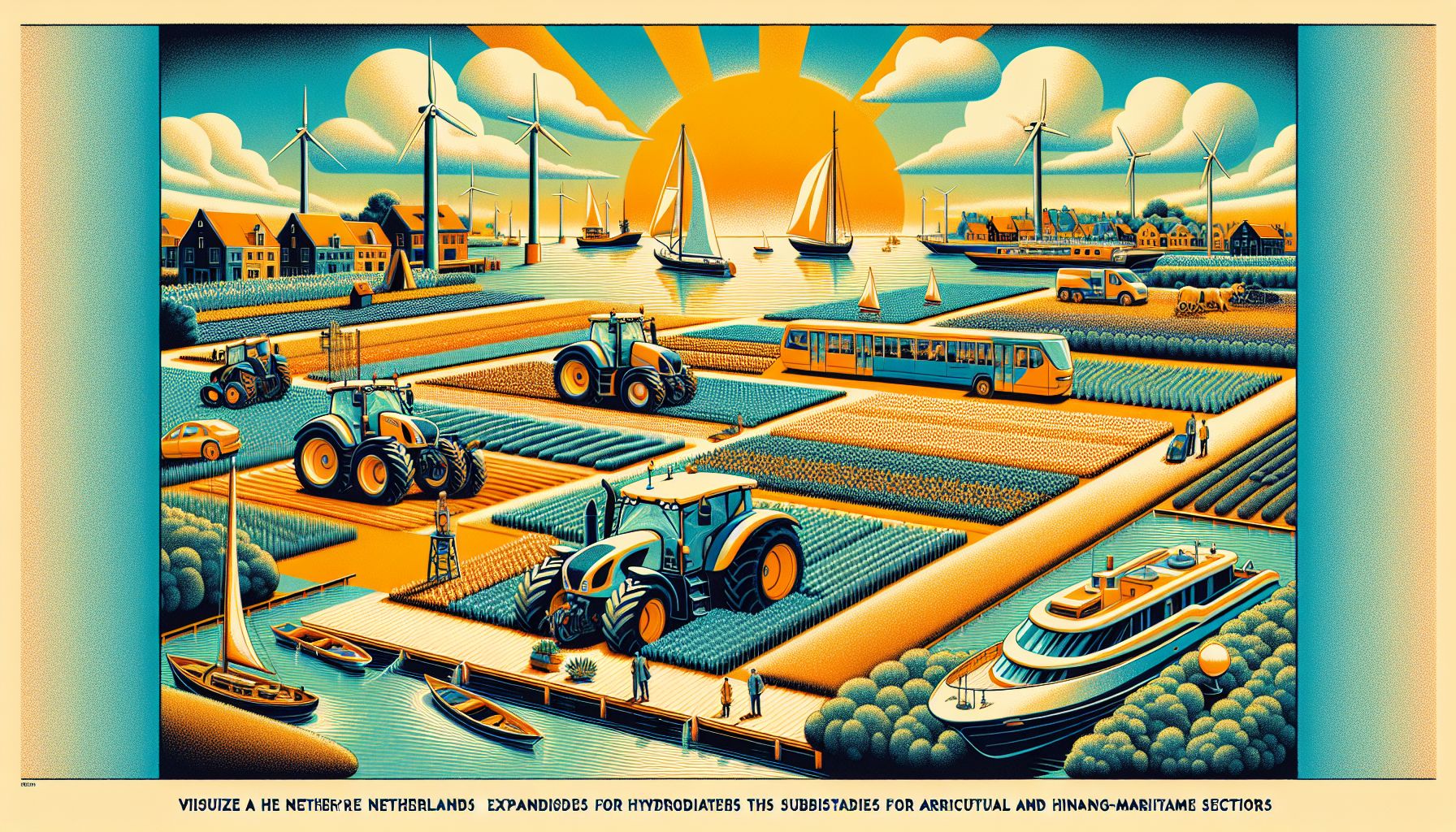Netherlands Expands Hydrogen Vehicle Subsidies to Boost Sustainable Transport

Den Helder, Friday, 4 October 2024.
The Netherlands broadens its subsidy program for hydrogen-powered vehicles, now including agricultural and maritime sectors. This initiative aims to promote sustainable energy use and drive innovation in transportation technology, offering financial support for research and vehicle conversion.
A Strategic Move for Sustainable Innovation
The expansion of the hydrogen vehicle subsidy program in the Netherlands signifies a strategic pivot toward sustainable innovation, particularly in the agricultural and maritime sectors. The Kop van Noord-Holland region is at the forefront of this initiative, aiming to cut down greenhouse gas emissions by embracing hydrogen as a key energy source. By extending financial support to cover both research and the acquisition of hydrogen-powered vehicles, the program not only encourages technological advancements but also propels the transition to a cleaner energy economy[1].
Financial Framework and Eligibility
Entrepreneurs in the Kop van Noord-Holland can apply for subsidies covering up to 75% of research costs, capped at 3,000 euros, and 30% of vehicle conversion or acquisition costs, with a maximum limit of 50,000 euros. With a total budget of 345,000 euros, the subsidy is designed to stimulate innovation and adoption of hydrogen technology within these sectors. Applications are open from 1 September 2024 to 1 September 2025, encouraging rapid uptake and development[1].
The Role of the Regio Deal Maritiem Cluster
The subsidy initiative is supported by the Regio Deal Maritiem cluster, which collaborates with the national government, regional municipalities, and private partners to foster a future-proof region. This collaboration is crucial for developing a robust hydrogen economy, which promises to create jobs and enhance skills within the local workforce. The Regio Deal is instrumental in guiding the region toward sustainable economic growth through the adoption of hydrogen technologies[1].
Broader Implications for the European Hydrogen Strategy
This move aligns with the broader European strategy to decarbonize and achieve climate neutrality. The recent IF23 Auction under the European Hydrogen Bank illustrated the continent’s commitment to renewable hydrogen, highlighting projects that aim to produce 1.58 million tonnes of hydrogen over the next decade. The Netherlands’ subsidy program contributes to this vision by enhancing local capabilities and integrating hydrogen into critical sectors, thereby supporting the EU’s ambitious climate goals[2][3].
Conclusion: A Step Towards a Greener Future
The Netherlands’ initiative to expand hydrogen subsidies underscores a significant commitment to green innovation. By empowering local industries to transition to hydrogen-powered solutions, the country is not only addressing environmental concerns but also setting a precedent for sustainable economic development. As these projects unfold, they will likely serve as a model for other regions, reflecting the potential of hydrogen to transform transportation and energy landscapes globally.

